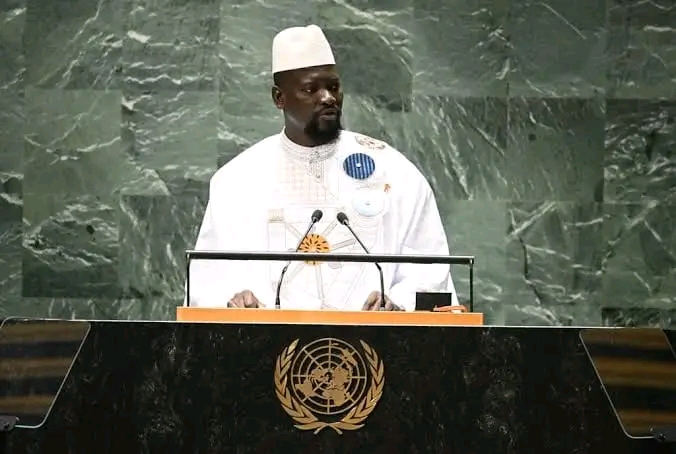By Vesla Centurion Kals
In a sheer show of bravery via a direct address to the United Nations General Assembly, Guinea’s military leader, Mamady Doumbouya, delivered a resounding message Friday, challenging the Western model of democracy and its application in Africa.
His words echoed through the assembly hall, leaving diplomats and world leaders in contemplation.
Doumbouya stated, “It is time to stop lecturing us and stop treating us with condescension like children, Africans are mature enough to design their own models of governance.”
His statement was met with rapt attention and resonated with many who have long called for a reevaluation of the relationship between Western democracies and African nations.
Furthermore, he emphasized, “Africa is suffering from a governance model that has been imposed on it,” shedding light on a sentiment shared by some African leaders and scholars who argue that Western-style democracy may not always align with the diverse cultural, historical, and political landscapes of the continent.
Doumbouya, who assumed power in a coup in 2021, stands at the forefront of a shifting political landscape in West and Central Africa.
His rise to power was one of eight such upheavals in the region over the past three years, signifying a broader trend of political change and discontent with established governance systems.
As the international community digests these declarations, they evoke a critical conversation about the role of Western democracy in Africa and the importance of respecting each nation’s right to self-determination in shaping its political future.
The challenges raised by Doumbouya call for a deeper examination of how governance models can be tailored to the unique needs and aspirations of African nations.


